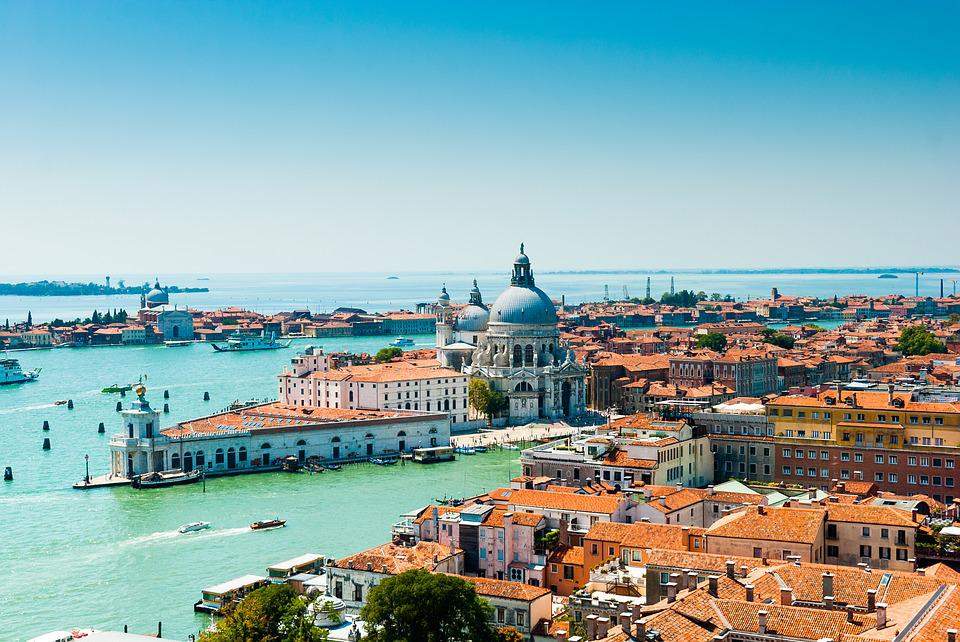It’s official, as of January 16, 2023, to visit Venice it will be necessary to pay a ticket, or rather an “access fee,” since it is a surcharge that will be paid according to the days and expected tourist flows. According to a statement from the City of Venice, it will be paid at the time of purchasing the ticket for the means of transport, whether rail, ship or scheduled, that will take the tourist to the lagoon city, or on site. All those over the age of 6 will pay. Exempt, of course, are residents of the city, those who go to Venice for work, those who study there, and even those who own second homes in the lagoon.
And also exempt will be those who stay in the City of Venice; domiciliaries registered in the temporary population register; those born in the City of Venice; disabled persons and an accompanying person; those who need to access for health services to health facilities located in the Ancient City of the City of Venice and other smaller islands in the lagoon; those who accompany patients to health facilities located in the Ancient City of the City of Venice and other smaller islands in the lagoon; and those who participate in sports competitions; those who attend these competitions by reaching them using a public transportation service exclusively dedicated to this purpose to the sports facility; those who participate in events, whether paid or free, organized by the Municipal Administration or sponsored by the Municipal Administration identified by resolution of the Municipal Council; public administrators and authorities on institutional missions; volunteers who provide their service at events and/or events organized or sponsored by the Municipal Administration and in those organized by the Metropolitan City of Venice and the Veneto Region; volunteers who render their service in case of emergencies; personnel belonging to the Armed Forces and Police Forces and the Fire Brigade, who access for service needs; those who have rented for residential and non-tourist reasons a house in the Municipality of Venice, including their registry household; Who is visiting resident relatives (relatives and kin up to the 3rd degree); who is visiting prisoners (relatives and kin up to the 3rd degree); who is attending a funeral (again relatives and kin up to the 3rd degree); those visiting individuals housed in social-health facilities (again relatives and relatives-in-law up to the 3rd degree); individuals visiting people residing in the Old City or the smaller islands (it will be the city resident who will have to accredit his or her guest); those who must attend trials or are summoned to public or judicial offices located in the Ancient City of the Municipality of Venice and the other smaller islands of the lagoon; passengers of tourist buses in good standing with payment of the Venice Municipality Bus Ztl; and those who exclusively access the areas of Ponte della Libertà, P.le Roma, Maritime Station and Tronchetto’s Isola Nova, without access to the historic city. Residents of the Metropolitan City of Venice and residents of the Veneto Region are also exempt, but only until they reach the thresholds that will be set by a special resolution of the Council.
All clear? If you have the impression that this is a somewhat contrived regulation, and one with several flaws, you are not the only one. Add to this the fact that it is unclear how the fee will be collected for those who do not arrive in the lagoon by boat or long-distance train (there is talk of an app run by an in-house company of the municipality or “automated and non-automated counters”), to imagine that it will actually be possible, in less than six months, to collect the access fee for all people who want to access Venice who do not fall into the 29 exempt categories seems unlikely.

And in fact it should be pointed out that the same, more or less identical regulation and announcement had been given in February 2019. The grant was supposed to start in May of that year and then stabilize in 2020: it never happened. It did not happen because of the same contentions and discrasies that are emerging these days, when after three years and several empty announcements the City Council has again published a regulation. In the first draft of the regulations there were 19 exemptions. Now they have increased a lot, but still several curiosities and weaknesses remain: to be noted, for example, that in case you have a friend who is a resident of Venice, you can visit him if he accredits the visitor, but if he dies you cannot attend the funeral if you are not his relative. Both exemptions were absent in the original regulations, and had raised criticism and protests.
As for the equally heralded reservation, again no obligation. At the same time that the lagoon municipality introduced the (new) access fee requirement, it raised the cost of vaporettos for non-residents from 7.5 to 9.5 euros one way. And from August 1 for those who book 30 days in advance, this increase will not be there. This was said by municipal budget councillor Michele Zuin: the principle is to guarantee discounts for means and cultural venues to those who decide to book their trip to Venice. “Those without Carta Venezia will be able to buy public transport tickets using the same fares in force today, compared to the new, increased fares that will start from September 1.” A simple invitation to book, then.
So what will happen from January 2023? Hard to say, since only with the publication of the regulations are the first objections beginning (as they had in 2019). Particularly strong ones concern residents of the Region of which Venice is the capital (but it also applies to neighboring areas), and who happen to have to travel to the city for the most varied reasons, which can hardly be pigeonholed into exemptions and self-certifications. But it seems clear that, with all the proposed exemptions, it will be rather difficult to enforce the regulation. Which, perhaps, if it is not postponed further as has happened so far, will result in increased prices for air trains and ships at the most touristy times of the year, which will go to replenish municipal coffers, and create a small deterrent to visiting on those days, but without guaranteeing any real control of flows. In the meantime, the idea will spread, in Italy and abroad, that access to Venice will be chargeable: and whether this is good, or not, for a city, for its image and for its well-being, is difficult to establish. Venice was the first city in the world to experiment with an access fee, in 2019. Three years and many postponements later, it still is: no one has ever thought of introducing it elsewhere. Who is right, between the Venetian administration and all other city administrations around the world, the future will tell.

The author of this article: Leonardo Bison
Dottore di ricerca in archeologia all'Università di Bristol (Regno Unito), collabora con Il Fatto Quotidiano ed è attivista dell'associazione Mi Riconosci.Warning: the translation into English of the original Italian article was created using automatic tools. We undertake to review all articles, but we do not guarantee the total absence of inaccuracies in the translation due to the program. You can find the original by clicking on the ITA button. If you find any mistake,please contact us.